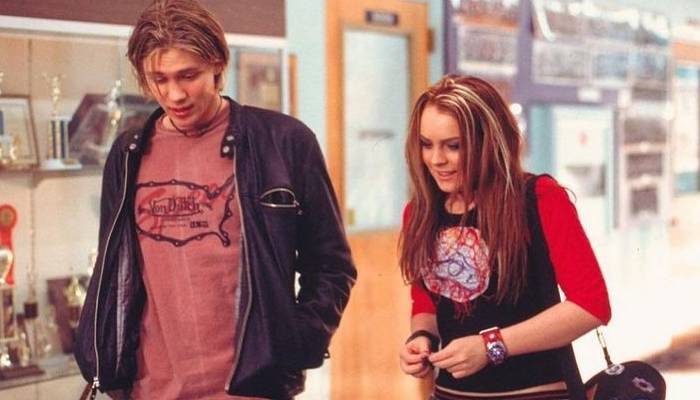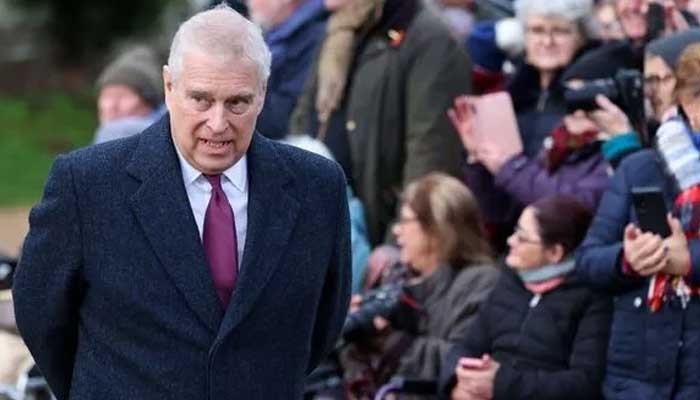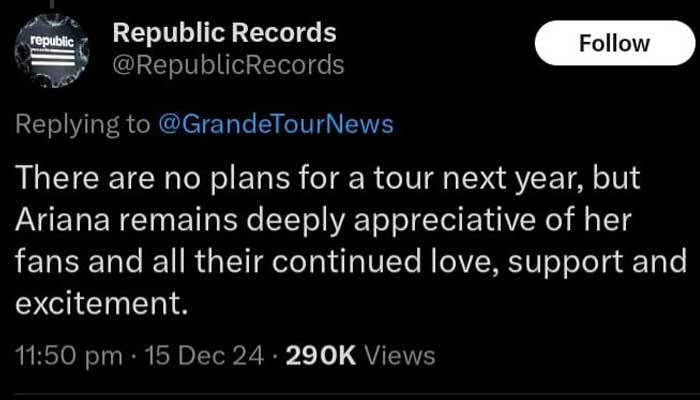US
LIVEWIRE: THE WORLD ON OUR STAGE
字号+ Author:Smart News Source:Health 2025-01-14 04:20:21 I want to comment(0)
In 2023, the Arts Council of Pakistan Karachi held an International Theatre Festival in which, apart from Pakistani artists, theatre groups from seven countries took part. It was a successful venture. This year, the council’s president, Ahmed Shah, aimed for the stars and did not confine the event to the realm of theatre alone. He turned it into a cultural extravaganza, as a result of which the first World Culture Festival (WCF) was organised from September 26 to November 2. Yes, it lasted for 38 days, with participation from nearly four dozen countries and their 350-plus artists. This meant Karachi’s art lovers witnessed a delectable variety of plays, dances, music concerts and art exhibitions. The opening day of the festival nicely set the tone for what audiences could expect in the coming weeks. It all began with two of the finest Pakistani artists — Ustad Sabzal (banjo) and Farhan Raees (sitar) — putting their talent on display. They were followed by Azerbaijani musicians, Sahib Pashazade and Kamran Kerimov. The difference in styles of the two kinds of music created a delightful contrast. They were followed by a dance group from South Africa, Jazzart, adding visual appeal to the rhythmic start to the proceedings. The recently concluded 38-day World Culture Festival, involving over 350 artists from 44 countries at the Arts Council of Pakistan Karachi, was one of the most ambitious and inspiring performing arts events ever held in the country The most eagerly awaited component of the entire programme were plays. They kicked off with White Rabbit, Red Rabbit by Iranian playwright Nassim Soleimanpur and produced by Pakistan’s Kanwal Khoosat. It was staged for two days with two different performers on each day — Nadia Jamil and Sarmad Khoosat, respectively. White Rabbit, Red Rabbit was an interactive, experimental piece which the writer penned in 2010 after his passport was taken away by Iran’s authorities. The fact that Pakistani artists chose to perform the play without any rehearsals — in fact, the actors were only provided the script on stage — in front of a discerning Karachi audience was brave enough. This was not the kind of theatre that’s usually done in our part of the globe. But what one saw on subsequent days, at the Arts Council’s Auditorium No. 1, with the arrival of some international groups, was even more visually and cerebrally astounding, to say the least. Kosovo’s play The Train, featuring only two characters — a toff and a bohemian — wowed all those who were expecting a drama with a linear movement and dialogue. It didn’t have dialogue and was anything but linear in its form. In a manner of speaking, The Train tipped its hat to Samuel Beckett’s Waiting for Godot, using the waiting area of a railway station as the motif of the story. The execution of the plot and the performances by the actors (Kushtrim B Mehmeti and Mehmeti Preteni) were right out of the top-drawer. The one-man show Here I Am, beautifully performed by Ahmed Tobasi, represented the Freedom Theatre in Palestine. His narration of his own life trajectory, a blend of a lot of fact and a bit of fiction, was poignant and sensitive, earning him a standing ovation. The way he told the story of growing up in Jenin Camp, being in an Israeli jail for four years and then theatre allowing him to vent his feelings, was touching and effective. Things only got better from here, as if it were possible, in terms of the technical aspects of theatrical production and how symbolism can be employed to minimise the dependence on words. The Road by the Lidia Kopina Company from Russia was an extraordinary work of believe.art. It relied mainly on movement of three women, with sand (denoting time) in between them. Even though some members of the audience found it inaccessible, a tad more thinking would have elucidated the plot for them: the evolution of mankind. However, The Road’s magic lay in the art of storytelling, ably supported by superbly creative use of lighting. Symbolism was at play with Belgium’s group as well, which came up with a piece titled Body Revolution through an entirely different and absorbing technique. The quilt-like screen had images of desolation and destruction (from the Arab world) caused by violence. Three characters emerged from that screen (and one couldn’t guess they were always part of the big visual device) to show how the body reacts to violent situations. Here it must be mentioned that the three performers who acted in the play belonged to Iraq (Mokhallad Rasem), Iran (Ahsan) and Morocco (Mustafa). Hence, the situational connection. Next up was the one-man show, Here I Am, beautifully performed by Ahmed Tobasi, representing the Freedom Theatre in Palestine. His narration of his own life trajectory, a blend of a lot of fact and a bit of fiction, was poignant and sensitive, earning him a standing ovation. The way he told the story of growing up in Jenin Camp, being in an Israeli jail for four years and then theatre allowing him to vent his feelings, was touching and effective. There were other notable mentions in the drama category, such as Shakespeare’s Fool (UK), Circle Mirror Transformation (Spain) and a cute little puppet show, Put Your Heart Into It (Italy). In music, while there were quality jazz performances from Germany and South Korea, and weekly gigs (usually on Saturday evenings) with local and international musicians performing in the open-air Jaun Elia lawn to large crowds, one thought it was the inimitable qawwal duo of Farid Ayaz and Abu Muhammad who outshone all the other noteworthy concerts at WCF. One would go so far as to say that they gave, possibly, their best performance so far, compared to all the shows that they have done previously for the Council. They were in supreme form and, despite the fact that they had to fly out of the country after a few hours to honour some professional commitments, they performed with remarkable spiritual gusto and artistic grace. As far as the art of dancing went, both Pakistani and foreign dancers impressed with their talent. If, on the one hand, there were the likes of classical dancers Sheema Kermani and Mani Chao who were liked by audiences, on the other hand, troupes from South Africa, Rwanda, Germany and Spain brought in their own distinct flavours of body movement to the festival. And how could the realm of fine art be ignored in a cultural festival? Some high quality exhibitions, showcasing artworks by Pakistani painters and sculptors, impressed art lovers at WCF, each lasting for at least a week. All of them were thoughtfully curated. For example, Behind the Stage contained works related to performing arts, that is, what happens while preparations are being made before going up on stage. Another display highlighted the artworks of more than six dozen artists from the province of Sindh. All of it was capped off with Azerbaijan’s traditional works, made out of damaged or unused carpets. Alongside these goings-on, talks on important subjects, such as ‘collaboration between Pakistani and international theatre companies’ and ‘whether good institutions produce good artists’ picked the brains of experts to enlighten audiences. Participants of the festival were also treated to some delicious sweets and tea made with dates from the UAE, as part of the event’s culinary cultural element. The closing ceremony signified the vastness and ambition of the WCF idea, as the Arts Council moved its last day’s venue to the sprawling grounds of the nearby YMCA. Another reason was that crowd-pullers Asim Azhar (pop vocalist), Tehzeeb Hafi (poet), Akhtar Chanal (folk singer) and Anwar Maqsood (satirist) were booked to round things off. Perhaps, the only downside to this massive 38-day gala of music, theatre, dance, art, food and discussions was its very longevity, which created festival fatigue. This is perhaps why during some fantastic performances, the council’s auditorium wasn’t packed to the rafters. This may be something for the organisers to mull over for the future.
1.This site adheres to industry standards, and any reposted articles will clearly indicate the author and source;
 Related Articles
Related Articles-
‘The worst we’ve ever seen’: Issues in Apache County, Arizona, preventing voters from casting ballots
2025-01-14 04:16
-
Pakistan resume first innings against South Africa's mammoth total in second Test
2025-01-14 03:56
-
Pakistan resume first innings against South Africa's mammoth total in second Test
2025-01-14 03:28
-
Pakistan resume first innings against South Africa's mammoth total in second Test
2025-01-14 02:13
 User Reviews
User Reviews Recommended Reads
Recommended Reads Hot Information
Hot Information- Haleem accuses police of firing on PTI caravan heading for Islamabad
- Pakistan resume first innings against South Africa's mammoth total in second Test
- Second Karachi Marathon draws hundreds of runners in chilly weather
- Second Karachi Marathon draws hundreds of runners in chilly weather
- Riley Keough gives tribute to mom Lisa Marie Presley with rare photo
- Second Karachi Marathon draws hundreds of runners in chilly weather
- Pakistan resume first innings against South Africa's mammoth total in second Test
- Second Karachi Marathon draws hundreds of runners in chilly weather
- Ireland approves Palestinian ambassador for first time
 Abont US
Abont US
Follow our WhatasApp account to stay updated with the latest exciting content













